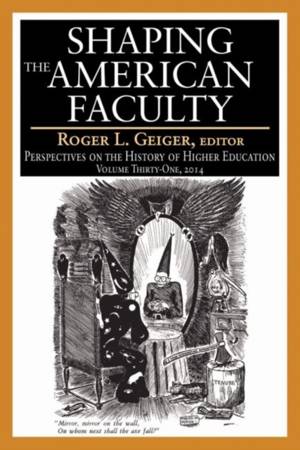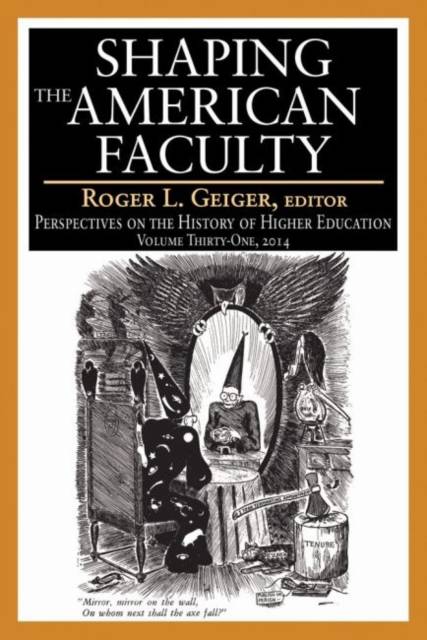
- Retrait gratuit dans votre magasin Club
- 7.000.000 titres dans notre catalogue
- Payer en toute sécurité
- Toujours un magasin près de chez vous
- Retrait gratuit dans votre magasin Club
- 7.000.0000 titres dans notre catalogue
- Payer en toute sécurité
- Toujours un magasin près de chez vous
Shaping the American Faculty
Perspectives on the History of Higher Education
Description
Beginning in the twentieth century, American faculty increasingly viewed themselves as professionals who were more than mere employees. This volume focuses on key developments in the long process by which the American professoriate achieved tenure, academic freedom, and a voice in university governance.
Christian K. Anderson describes the formation of the original faculty senates. Zachary Haberler depicts the context of the founding and early activities of the American Association of University Professors. Richard F. Teichgraeber focuses on the ambiguity over promotion and tenure when James Conant became president of Harvard in 1933. In "Firing Larry Gara," Steve Taaffe relates how the chairman of the department of history and political science was abruptly fired at the behest of a powerful trustee. In the final chapter, Tom McCarthy provides an overview of the evolution of student affairs on campuses and indirectly illuminates an important negative feature of that evolution-the withdrawal of faculty from students' social and moral development.
This volume examines twentieth-century efforts by American academics to establish themselves as an independent constituency in America's colleges and universities.
Spécifications
Parties prenantes
- Editeur:
Contenu
- Nombre de pages :
- 182
- Langue:
- Anglais
- Collection :
Caractéristiques
- EAN:
- 9781412856027
- Date de parution :
- 30-06-15
- Format:
- Livre broché
- Format numérique:
- Trade paperback (VS)
- Dimensions :
- 147 mm x 234 mm
- Poids :
- 226 g






